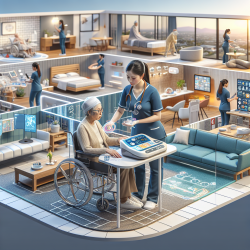The COVID-19 pandemic has significantly altered the landscape of psychological services, increasing both the demand for mental health support and the challenges faced by practitioners. As psychologists navigate these turbulent times, peer consultation emerges not just as a luxury but as a critical necessity. The research article "Peer Consultation: An Enriching Necessity Rather Than a Luxury for Psychologists During and Beyond the Pandemic" underscores the importance of this practice in mitigating burnout and enhancing clinical skills.
The Rise of Burnout Among Psychologists
The pandemic has exacerbated stressors for psychologists, leading to heightened levels of burnout. With increased caseloads and the shift to teletherapy, many practitioners find themselves overwhelmed. According to the research by Miu et al., (2022), peer consultation provides a vital outlet for psychologists to discuss challenging cases and receive support from their peers.
Benefits of Peer Consultation
- Counteracting Isolation: Peer consultation fosters a sense of community and collegiality among psychologists, which is crucial in reducing feelings of isolation.
- Enhancing Clinical Skills: Regular consultations allow psychologists to receive feedback on complex cases and improve their clinical effectiveness.
- Promoting Self-Care: By sharing experiences and coping strategies, psychologists can better manage personal stressors that may interfere with their professional duties.
Navigating Teletherapy Challenges
The transition to teletherapy has brought about new ethical and clinical challenges. Ensuring privacy and adapting therapeutic techniques to a virtual format are just a few hurdles faced by practitioners. Peer consultation groups provide a platform for discussing these challenges and developing effective strategies to overcome them.
Creating Effective Peer Consultation Groups
An effective peer consultation group should be non-hierarchical and non-judgmental, fostering an environment where members can openly discuss both clinical and personal challenges. The research suggests that such groups are most successful when they are small, closed, and comprised of members with shared goals but diverse backgrounds. This diversity enriches discussions and broadens perspectives.
The group should also prioritize mutual self-care and compassion, reminding members that taking care of their own well-being is essential to providing quality care to their clients.
A Call to Action for Practitioners
The current landscape demands that psychologists actively seek out peer consultation opportunities. Whether through formal groups or informal networks, engaging with peers can significantly enhance professional competence and personal well-being.
If you are a psychologist looking to improve your skills and reduce burnout, consider forming or joining a peer consultation group. This practice not only benefits your professional development but also enhances the care you provide to your clients.










